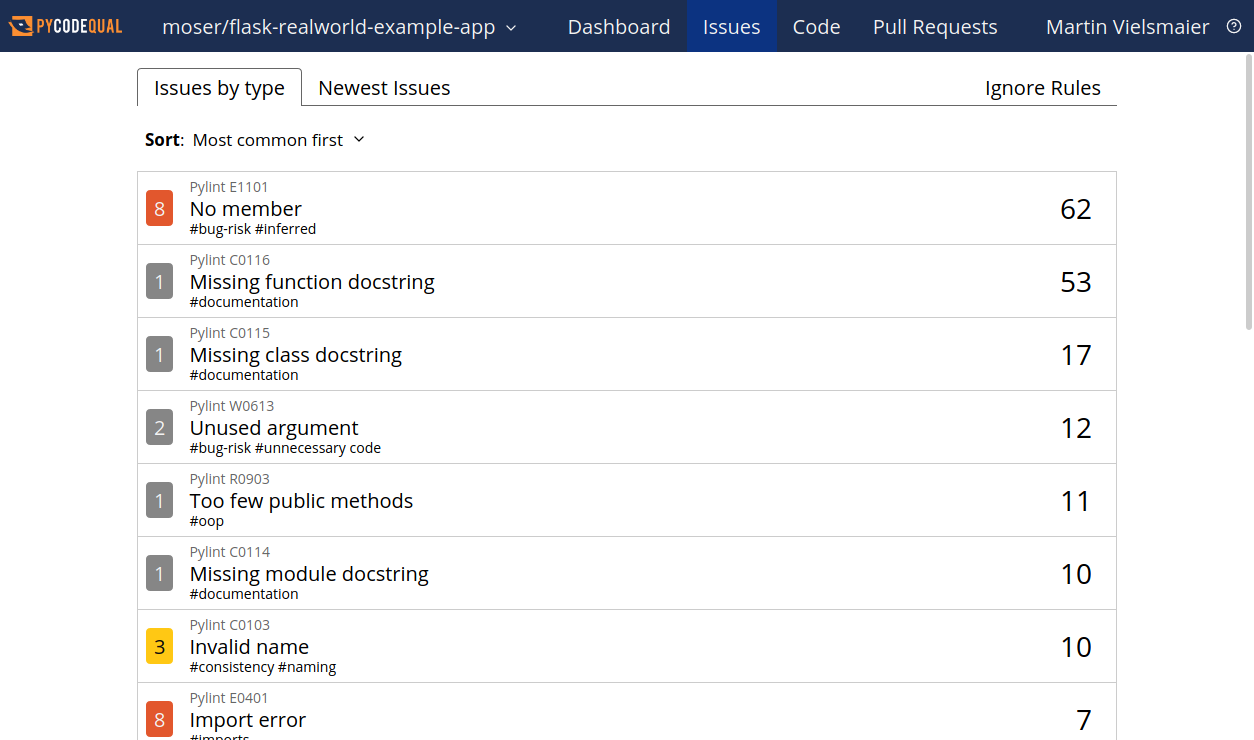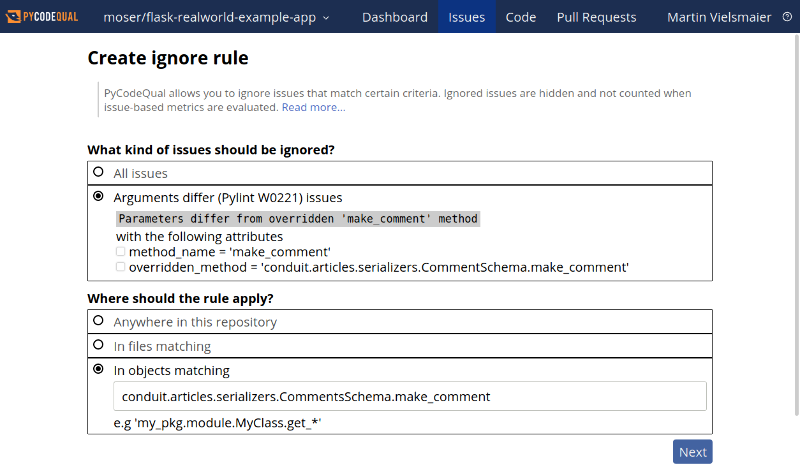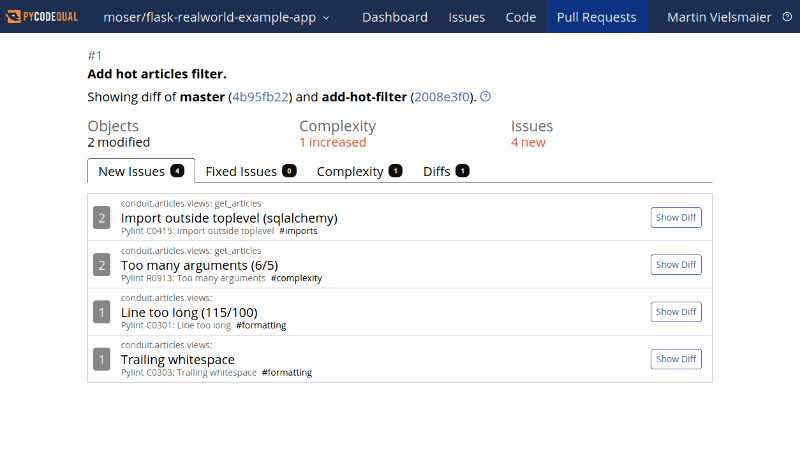
Issues
PyCodeQual uses different linters to find issues in your Python code. The main work is done by Pylint. Issues can be viewed in lists showing the newest, most common or most severe issues first. Linter issues (especially Pylint's) are sometimes hard to understand. In order to make it as easy as possible to understand what the problem is, PyCodeQual shows you some lines of code around the location of the issue as well as additional information on the type of the issue (from our documentation).
Dependencies
You can configure dependencies to be installed from PyPI. If you have a
requirements.txt file in your repository, this one will be picked
up automatically. By doing the analysis with dependencies installed, PyCodeQual
generates accurate issues.




